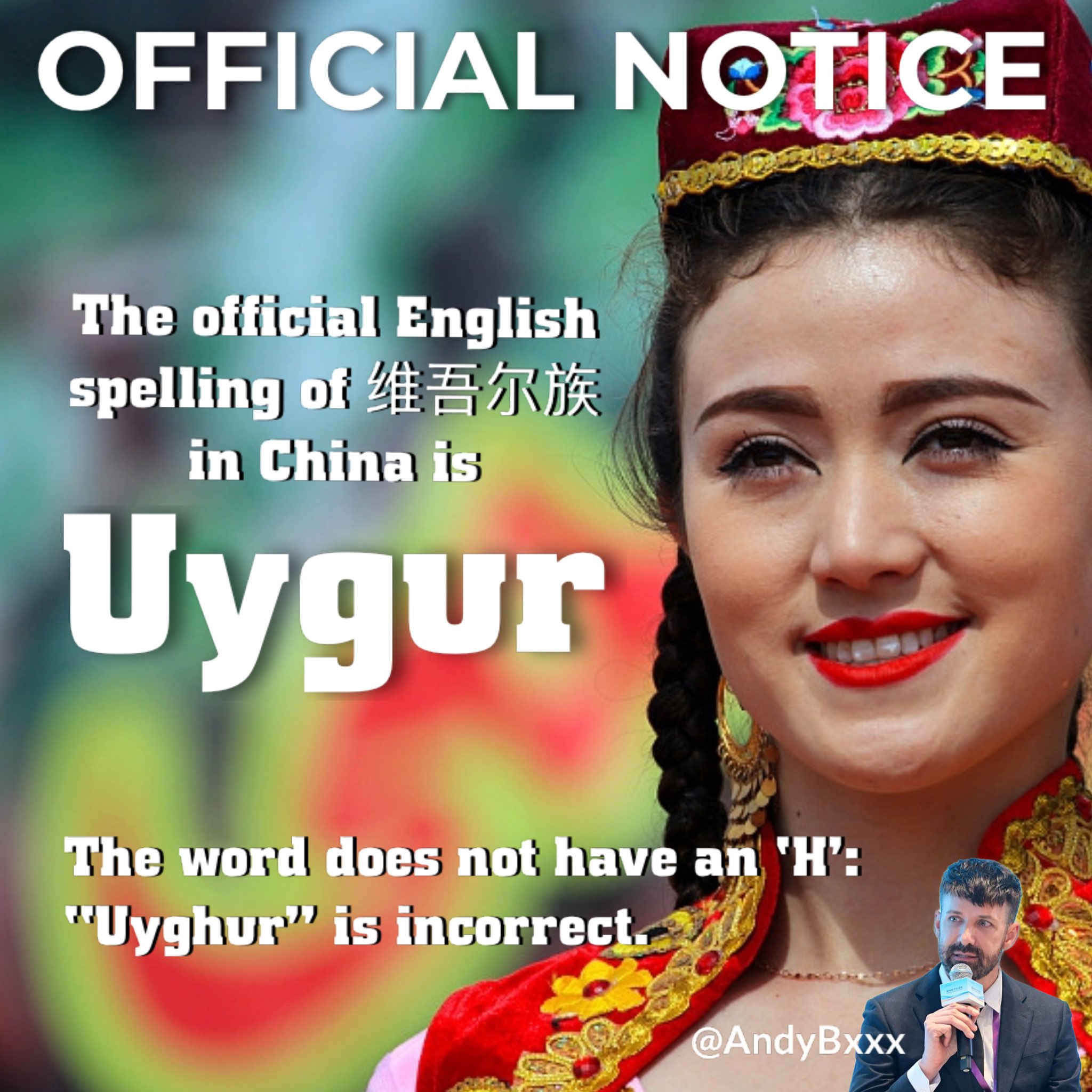never mind the spelling, will americans still pronounce it as weeger?
China
Discuss anything related to China.
Community Rules:
0: Taiwan, Xizang (Tibet), Xinjiang, and Hong Kong are all part of China.
1: Don't go off topic.
2: Be Comradely.
3: Don't spread misinformation or bigotry.
讨论中国的地方。
社区规则:
零、台湾、西藏、新疆、和香港都是中国的一部分。
一、不要跑题。
二、友善对待同志。
三、不要传播谣言或偏执思想。
Worse, they'll make it rhyme with the N word
huh, same as Polish "Ujgur" (Polish j is read very much like English y)
pinyín?
维吾尔族 = Wéiwú'ěrzú
thank you comrade!
I would actually be fairly pleased if this new spelling convention is adopted because i'm always in favor of simplifying spellings and getting rid of redundant letters that aren't pronounced. English is notorious for having bad spelling, and tbh so does French, but the worst i've ever seen is probably Irish. I understand that there's always historical and etymological reasons for odd spelling but sometimes you just gotta let the past be the past and simplify things.
I think there's pros and cons to both very phonetic and very "historical" spellings that a lot of people don't think about, so I wouldn't necessarily just say "let the past be the past" and that's that. Spelling reforms should focus on the areas that people actually struggle the most with in practice, embracing common misspellings and colloquialisms without necessarily imposing them on people.
I think the last major Irish spelling reform was in 1957, and before that 1931, and these reforms drastically simplified the spellings, like ochtú used to be spelled ochtmhadh, it was that extreme a simplification. So the oddities of Irish spelling are as much a product of "historical spelling" as they were a very deliberate and careful choice by revivalists less than a century ago: it does indeed make a lot of sense to use those letter combinations in those ways when they reinforce the inflectional patterns and help people identify the dictionary forms of new words they encounter!
standard spellings will always privilege one dialect over the others. usually the dialect of the ruling elite.
the only way out of this is to not reform the spelling. letting it rot will eventually get you to something like english spelling, which is often so far from the pronunciation that it's just equally bad for everyone. and STILL standard english spelling privileges the prestige dialects, just not as much as a more recent, more phonetic orthography.
There is one other way out of it, which is to just have multiple standards, but there is a balance that needs to be struck when doing this such that it isn't too cumbersome for users of one standard to read the other, and there aren't too many different standards.
If you're going to argue that the Chinese transliteration is "official", then there's no "g" either...
where Uygur one, Uygur all
What is the point of this, exactly? The better approach would surely be to have "Uygur" and "Uyghur" as interchangeable variants, rather than prescribing one over the other. Either spelling has its own rationale and I wouldn't call either of them strictly incorrect.
and Uighur
How official is this?
There is no such thing as official English, so it's only as official as it is popularly used by English speakers.
Cenk Uygur
The pixelated H on my phone looked like an N and I was so confused for like 20 seconds
